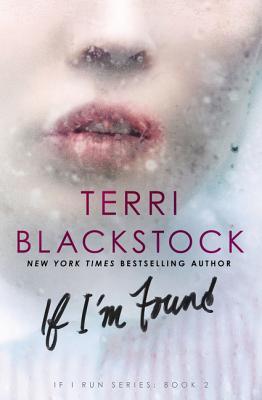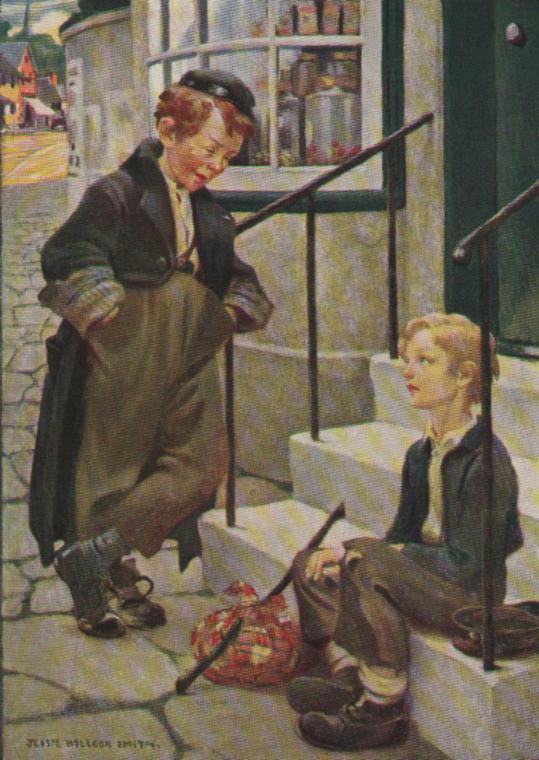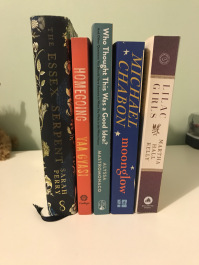
“Nick and Cassie almost had their perfect family: their parents were getting married, and that meant a best-friend brother and a sweet little sister for Cassie, and Nick would have Cassie as his partner in crime. When their parents mysteriously call off their wedding and Cassie is left in her Gram’s care, Cassie and Nick become “almost-step” pen pals. Through letters, they scheme about how to get on their favorite game show, The Last Insult Standing, and just maybe figure out how to get their parents back together. Just Sayin’ is a heartwarming, funny story told through letters, demonstrating the power that words have to tear people apart or bring them together.”
The novel Just Sayin’ by Dandi Daley Mackall is categorized in the genre of juvenile fiction, and seeks to emphasize themes of friendship, kind speech, and reconciliation. Through her characters—both children and adults—she seeks to humorously work through the power of words and the need for both kind and clear communication, and even show how the Bible can bring about change in the Christian life.
A few things that made this book enjoyable for me as a reader:
The first thing is the concept/structure. This story is told almost entirely through letters written between the characters, beginning with the child protagonist, Cassie Callahan. Mackall brings in the realistic expectation via the supporting characters’ comments that in today’s technological society that Cassie should have a phone or a computer through which she can communicate, but her love of words and writing comes through pretty seamlessly. The letter-writing format is consistent throughout the book, save some necessary records of phone conversations, as well as text exchanges.
The second thing is (warning, spoilers) the humor. There’s a point where Nick and Cassie attempt to get their parents back together by writing to them as each other (So, Nick writes to Cassie’s mom as Nick’s dad, and Cassie writes to Nick’s dad as Cassie’s mom). The writing here is hilarious, and the absurdity of how these two kids view romance is both realistic and enjoyably naive. It really did make me laugh out loud.
The third thing was Cassie’s character development as well as her uniqueness as a character. There’s a clear and realistic spiritual change that happens in Cassie the more she contemplates her words, what they mean, and how they affect others. And yet, the change isn’t so drastic within the time frame that it makes her growth unrealistic. She’s still the snarky, sassy, little girl that she was at the beginning of the story, still Cassie, but by the end of the book she’s on her way to changing not just her words, but also her whole life, even as an eleven-year-old. Her enjoyment of words was just one of the many other idiosyncrasies that set her apart from the other characters, and helped her earn her spot as the protagonist of the story.
*Bonus element that made this read enjoyable: Mackall did a great job of bringing Scripture into this story and making sure, at least in Cassie’s life, it was clear that the Bible is what brought about her character change. The way Cassie approached the Bible and “writing letters to Jesus” was in line with her character and how she typically did things, and gave me a sweet look into how an eleven-year-old might see God.
A few things that made this book difficult for me as a reader:
The first thing is the inconsistency of the voice. There were a few times when Nick or Cassie sounded considerably more mature than the eleven-year-olds they are. There were also a few times when Nick or Cassie used outlandishly poor grammar that didn’t fit with their general maturity; the mistakes seemed too intentionally placed and took me out of the story as a reader.
The second thing is the grammatical errors. There’s a possibility Mackall intentionally placed certain marks in the wrong places (periods inconsistently inside and/or outside the parentheses, when the rule is typically that they belong outside, etc.) to make the story more true to real-life letter-writing. But with how fluidly Nick and Cassie wrote, the errors were more distracting than anything else, and did not accomplish the intention, should it have been the intention, of making the letter-writing more realistic.
The third thing is the perfect ending. Granted, it is a book that seems to be geared more towards children, and it might be that endings in that particular genre are meant to be this way, but the ending seemed too easy. Every loose end is tied up. Everyone gets what they wanted. Things work out exactly as planned. Now, I love happy endings. I really do. But it doesn’t feel like the ending was earned, and no real heartache was experienced in order to achieve it, except from the poor miscommunication of Nick’s dad and Cassie’s mom, and yet even that didn’t seem like a solid enough catalyst for the drama that proceeded, and was then easily figured out and tied up in the end.
I would, however, despite the previous remarks, recommend this book to anyone looking for a light-hearted read filled with humor, in need of a lesson about the power of our words, or looking for a reminder that God changes people.
About the Author:
“Dandi Daley Mackall is the award-winning author of over 450 books for children and adults. She visits countless schools, conducts writing assemblies and workshops across the United States, and presents keynote addresses at conferences and young author events. She is also a frequent guest on radio talk shows and has made dozens of appearances on TV. She has won several awards for her writing, including the Helen Keating Ott Award for Contributions to Children’s Literature, the Edgar Award, and a two-time Mom’s Choice Award winner. Dandi writes from rural Ohio, where she lives with her husband, Joe, their three children, and their horses, dogs, and cats.”
If you’re interested in knowing more about Dandi, I present thee reader with thine access to her blog…eth.
https://dandimackall.wordpress.com/
*A complimentary copy of this book was given to me by Tyndale Press.
Advertisements Share this:






